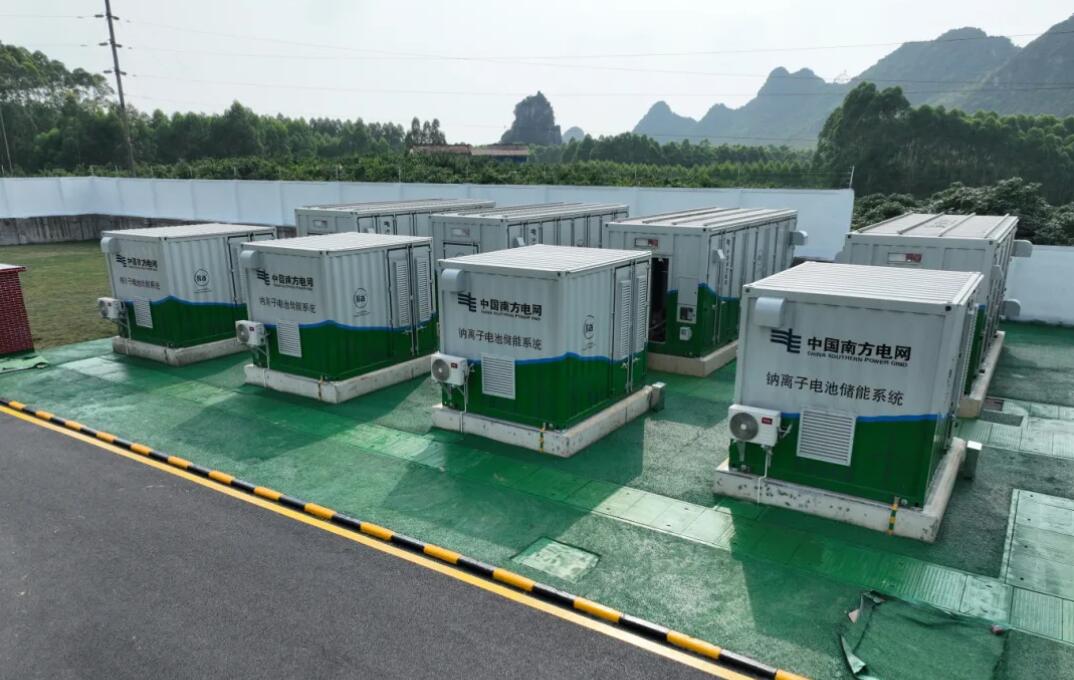China has recently initiated its inaugural large-scale sodium-ion battery storage station, signaling the onset of this new, potentially more cost-effective battery technology for broader utilization in the energy sector.
The 10-megawatt-hour (MWh) station began operations on May 11 in Nanning, Guangxi, southwestern China, according to China Southern Power Grid Energy Storage, the energy storage arm of Chinese grid operator China Southern Power Grid. This station marks the initial phase of a larger 100-MWh project.
Upon completion, the full project is projected to generate 73 million kilowatt-hours (kWh) of clean power annually, catering to the electricity needs of 35,000 households and reducing carbon dioxide emissions by 50,000 tons per year, as stated by China Southern Power Grid Energy Storage.
By the end of the first quarter, China had achieved a cumulative installed capacity of 35.3 million kWh for new energy storage projects, with electrochemical storage, predominantly lithium-ion batteries, accounting for over 95 percent, according to the statement.
While lithium-ion batteries dominate the current landscape, challenges such as a scarcity of raw material resources impede the sustainable and rapid growth of China’s new energy storage industry, the statement noted.
Describing the technology, Chen Man, a technical expert at China Southern Power Grid, highlighted that sodium-ion batteries and lithium-ion batteries operate on similar electrochemical mechanisms, storing and releasing energy through the reversible engagement and disengagement of cations between the positive and negative electrodes. The distinction lies in the cathode material, with lithium-ion batteries containing lithium ions and sodium-ion batteries containing sodium ions.
Sodium-ion batteries offer several advantages over their lithium-ion counterparts, including abundant and easily extractable raw material reserves, low cost, better performance at low temperatures, and significant benefits for large-scale energy storage, according to China Southern Power Grid Energy Storage.
Chen Man further emphasized that the large-scale application of sodium-ion battery energy storage could potentially reduce costs by 20 to 30 percent, bringing the cost per kWh of electricity down to RMB 0.2 ($0.0276), representing a significant advancement in new energy storage applications.
The 10-MWh sodium-ion battery energy storage station employs 210 Ah sodium-ion battery cells capable of reaching 90 percent charge in just 12 minutes. The project’s research and development team also devised a thermal management system that maintains a temperature difference of within 3 degrees Celsius among over 22,000 sodium battery cells, extending the time taken for cells to spread thermal runaway from 30 minutes to 2 hours, the statement highlighted.

